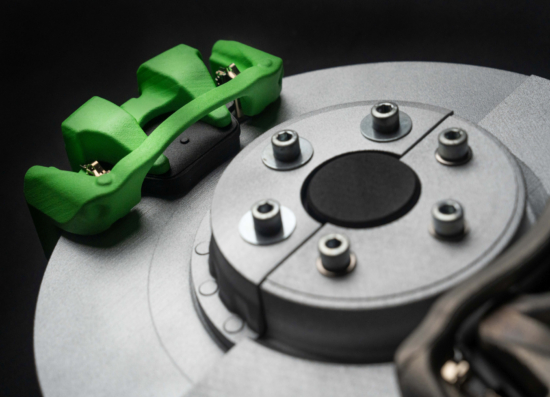Continental develops weight-saving electric vehicle brake caliper

Continental has developed a so-called Green Caliper, a brake caliper for disc brakes which is significantly lighter than previous designs and has a lower residual brake torque. The Green Caliper reportedly saves up to five kilograms per brake – and the reduced friction between brake pad and disc contribute to increasing the range of an electric vehicle.
Unlike the brakes in a conventional vehicle, those in electric cars are activated much less frequently. This is because in over 80 per cent of deceleration situations, the brake is not needed at all due to regeneration braking technology also know as recuperation. However, this does not mean that the Green Caliper has less work to do. On the contrary, because electric vehicles are typically heavier than conventional cars, the deceleration performance of the brakes often has to be even higher. On the other hand, their thermal load is lower because the brake is used much less frequently. And that’s what changed the requirement profile for the new brake caliper.
“Increasing efficiency is a primary goal in the optimization of electric vehicles. The lower the loss of electrical energy, the greater the range of the vehicle,” says Dominik Hiss, head of Product Center Friction Brakes, Hydraulic Brake Systems at Continental. “Brakes can make a contribution to this that has not been exploited to date. With the new Green Caliper, we are providing a production-ready technology that unlocks additional potential for the range of an electric car.”
The Green Caliper design is the result of a system analysis of the brakes in the vehicle. The vehicle offers up to around 0.3 g of deceleration – in the comfort braking range – so foundation braking is hardly needed in electric vehicles. The so-called blending area – the seamless transition between recuperation and foundation brake use controlled by the electronic brake system – only occurs beyond this point. The foundation brake is only active on its own during emergency braking. The developers at Continental have

 Exhausts
Exhausts Halfords
Halfords

Comments